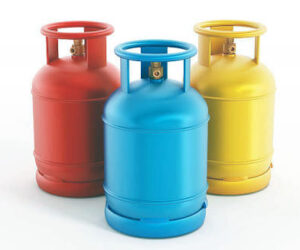1
LAGOS – In a decisive move against rising alcohol abuse, the Nigerian Senate has ordered that by December 31, 2025, all “sachet and small-bottle alcoholic drinks” must be completely phased out.
The directive to the National Agency for Food and Drug Administration and Control (NAFDAC), represents the government’s firmest stance yet against what lawmakers call a “public health and moral crisis.”
The motion, sponsored by Senator Asuquo Ekpenyong (Cross River South), decried the continued sale of “cheap, high-strength alcohol” often consumed by minors, drivers, and low-income workers.
“This is no longer a mere regulatory issue,” he said. “It’s a national moral responsibility. We cannot keep destroying our youth in the name of profit.”
Daily Independent can recall in this context that the battle over sachet alcohol began in 2018, when the Federal Ministry of Health, NAFDAC, FCCPC, and manufacturers under the Association of Food, Beverage and Tobacco Employers (AFBTE) agreed on a “five-year phase-out plan”. The goal was to curb underage and binge drinking.
NAFDAC began enforcement in 2024, sealing factories and seizing contraband products. But pushback was swift: manufacturers cited job losses and economic strain. Despite lobbying, lawmakers say the December 2025 deadline stands firm.
Senators described sachet alcohol as “a public menace,” linking it to addiction, violence, school dropouts, and road accidents. Often sold for less than ₦100, the drinks are widely accessible and easily abused.
Senator Anthony Ani (Ebonyi South) argued that “the easy availability of cheap alcohol is destroying a generation.”
Senate President Godswill Akpabio backed the motion, insisting that NAFDAC “must act decisively to protect young Nigerians.”
Experts warn that sachet alcohol, with its high ethanol content, fuels addiction and health complications, even among pregnant women unaware of the risks. NAFDAC’s Director-General, Prof. Mojisola Adeyeye said the products are “deliberately designed to attract underage drinkers” and vowed that the agency would enforce the ban “without compromise.”
Lawmakers noted alcohol’s role in “domestic violence, reckless driving, and community disorder”, insisting that public health outweighs profit. “We cannot keep selling death as if it were pure water,” a NAFDAC official stated bluntly.
Manufacturers’ warnings about job losses have found little sympathy in the Senate. Ekpenyong cited Kenya and Uganda as examples of countries where similar bans significantly reduced alcohol-related harm. “Nigeria must protect its youth,” he said.
NAFDAC has launched awareness drives, warning that from January 2026, alcohol in containers below “200ml” will be illegal. Prof. Adeyeye vowed to “shut down any factory or outlet” that defies the order.
Public health experts back the move, arguing that long-term gains, fewer hospitalisations, safer roads, and a more productive workforce, outweigh short-term losses. “Protecting lives must come before protecting margins,” one economist said.




